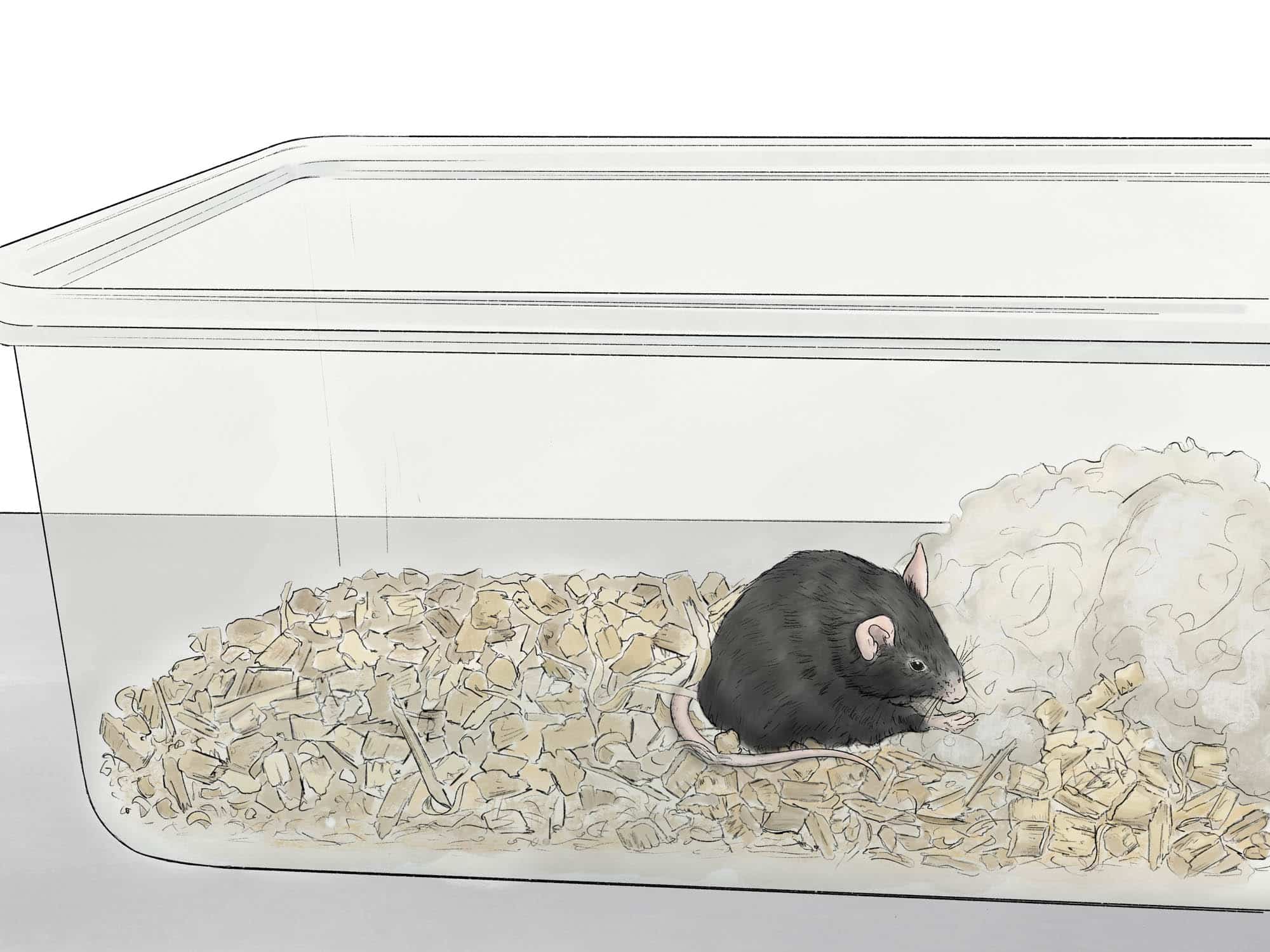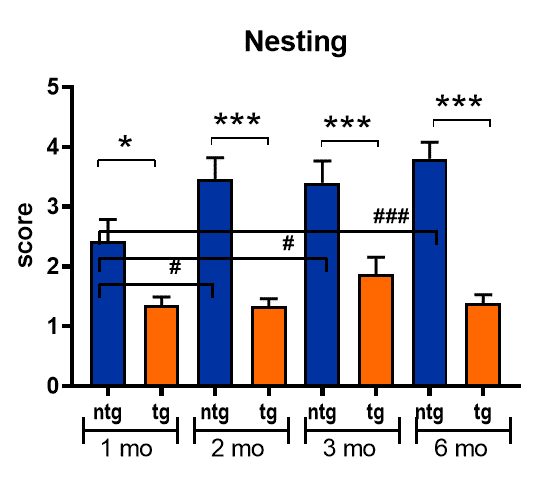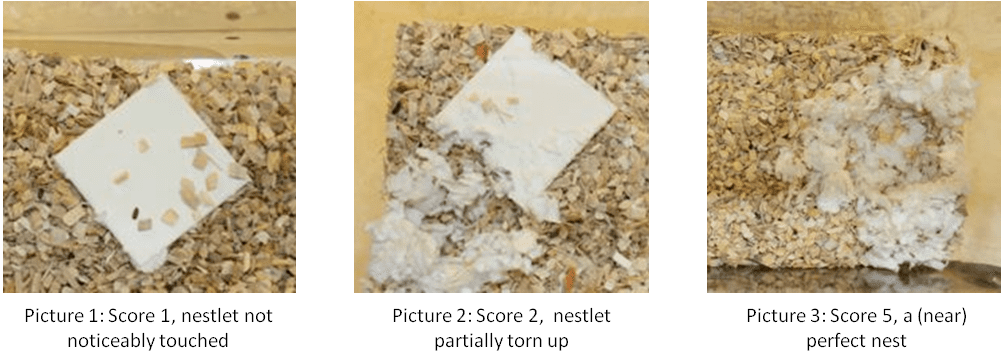Nest Building Test

Nesting behavior is an intrinsic behavior performed by male and female rodents that requires fine motor skills. The nest building test is a simple and versatile behavioral test suitable for the evaluation of motor deficits, as well as changes in general health or welfare. It is sensitive to environmental and physiological challenges, genetic mutations, and pharmacological interventions. There are several advantages of this test: it is performed in the home cage without the presence of the experimenter, bedding material that is not used can be weighted to obtain an objective measure and it is simple to perform while still yielding robust readouts. The nest building test is commonly used in animal models of Parkinson´s disease, ALS, Niemann-Pick disease, and Huntington´s disease.
Nest Building Behavior in Mice
To test the individual nest building behavior, mice are individually housed in cages containing wood chip bedding and one square of pressed cotton – `nestlet´. No other nesting material is provided. The following morning the manipulation of the nestlet and the quality of the built nest are assessed manually according to a five-point scale.
Nest Building Behavior in Rats
The ability of rats to build nests is assessed by offering the animal wood wool nesting material that is placed into the metal grid next to the food pellets.
In the evening, rats are provided with nesting material. The following morning, the quantitative amount of nesting material that was actively pulled into the cage, as well as the quality of the nest is assessed. The unused nesting material is thus weighed and recorded, and photographs of the nests are taken and analyzed manually by an experienced experimenter.

Figure: Nest building behavior in 2, 3 and 6 month old Line 61 mice compared to non-transgenic littermates. n = 11 – 15; Mean + SEM; Two-way ANOVA with Bonferroni’s post hoc test. *p<0.05; ***p<0.001.

